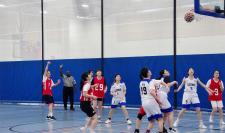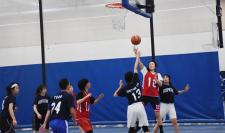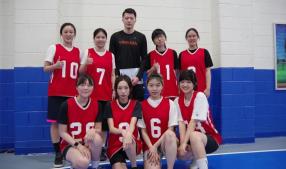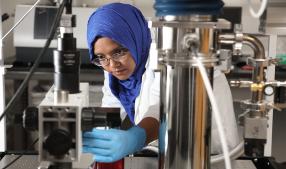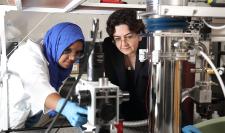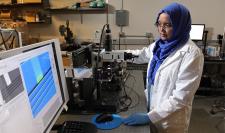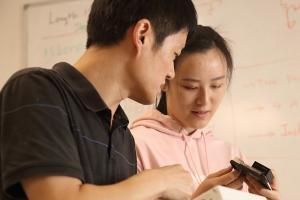
The electrical and computer engineering community at UVA commemorates the legacy of Professor Malathi Veeraraghavan through a graduate fellowship in her name. The Department established the merit-based, donor-funded fellowship program in 2021. The 2022-23 fellows are Yujia Mu, a Ph.D. student of computer engineering, and Farjana Tonni, a Ph.D. student of electrical engineering.
“I can think of no professor more committed to diversity and inclusion than Professor Veeraraghavan,” said Scott Acton, chair of the Charles L. Brown Department of Electrical and Computer Engineering. “Malathi was also committed to mentorship and training. She was tireless, even writing mentoring notes and correcting papers while walking her dog! I am certain that Malathi would be proud to support the training of these two women in their journey to become leaders of engineering.”
Mu had the privilege of working directly with Veeraraghavan, who passed away on May 11, 2020. Veeraraghavan’s group members focused on network security, software-defined networks and networks for industrial robotics and smart communities. Mu used machine learning methods to detect unusual network activity, part of a long-term cyber-defense initiative that provided network managers with early warning tools to detect intrusions while preserving data privacy.
“Professor V understood and guided everyone's projects,” Mu recalled. “She took notes in our one-on-one meetings, to memorize and track our progress. She was a responsible tutor who cared about her students, actively communicating with us about our studies and about life.”
Mu began her graduate study at the UVA School of Engineering and Applied Science in 2017, earning her Master of Engineering degree in computer engineering in 2019. While in the job market, Mu sought to join Veeraraghavan’s research group as a temporary research assistant. But Veeraraghavan had bigger plans; she encouraged Mu to continue her research in the Ph.D. program.
In Veeraraghavan’s group, Mu developed machine learning algorithms and models for next-generation networking, designing a deep learning architecture to reliably and simultaneously classify streamed data files to many end-users, a network function called multi-casting. Mu proposed a quality-of-service-driven data classification pipeline to achieve the optimal file transmission rate based on the type, volume and quality of data distributed to through a network at any point in time.
While still early in her Ph.D. program, Mu was co-advised by Veeraraghavan and Cong Shen, assistant professor of electrical and computer engineering. She is a member of Shen’s Laboratory for Intelligent Communication and Networking.
Mu specializes in a machine learning technique that is ideal for data privacy and edge computing called federated learning, which she applies to wireless communication networks. For example, Mu proposed a method for federated learning tasks when the quality of the channel between the transmitter and receiver is poor, such that an originally successful communication may suddenly become disconnected due to dynamics in the wireless medium. Mu’s solution to this problem, termed deep fading, was accepted by the prestigious IEEE International Symposium on Information Theory, colloquially known as ISIT 2022.
Mu is exploring a sub-area called federated split learning that achieves the predictive power and other benefits of machine learning without having to share data between devices and network servers. The deep neural network — the element that teaches computers how to process data like a human brain, via interconnected nodes of a layered, mathematical structure — is divided into two parts. One part is trained on users’ devices while the other is trained on the network server.
Professor Veeraraghan’s legacy and the fellowship established in her name encourages students to be well-rounded and explore interests outside academe. For Mu, that passion lives on the basketball court, a talent she developed at an early age. She trained every day in her high school and played in China’s NCAA-level basketball league for Tsinghua University in Beijing, where she earned her Bachelor of Engineering degree in electrical engineering.
